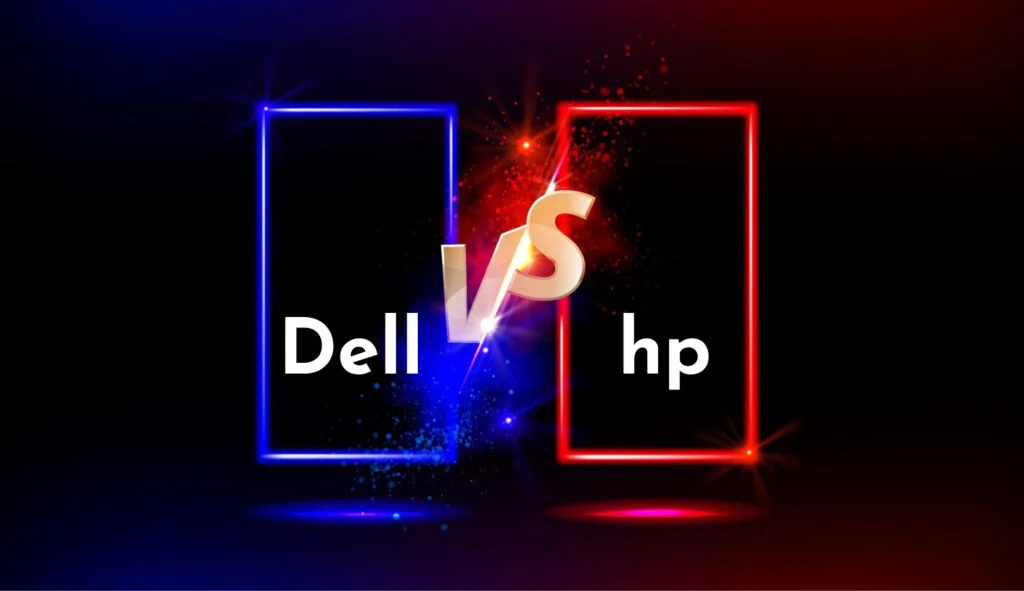Think your laptop’s just a tool for work and play? Think again. These tech marvels might also be key players in the fight against climate change. Our favorite laptop brands like Dell, Lenovo, and Apple are stepping up their game with insane sustainability goals. They’re not just dabbling in eco-friendly technology; they’re going all-in, transforming how they make, package, and recycle products. This deep dive unveils the ambitious green initiatives from leading brands aiming for a lighter footprint on Mother Earth. So, ready to geek out on how your laptop could be a green warrior? Let’s dig in!
Innovations in Eco-friendly Laptop Design
Eco-friendly laptops are getting a lot of love these days. Why is sustainable design such a big deal? It cuts down on our carbon footprint and helps keep our planet green. By using recycled materials and innovative designs, companies are making laptops that are not just smart but also kind to the environment. Imagine a world where your tech doesn’t just entertain but also protects Mother Earth.
Sustainable Materials in Laptop Design
What kind of materials are we talking about? Dell, HP, and Asus are going all out with recycled and renewable materials. Lenovo’s making waves with ocean-bound plastics, and Apple is using 100% recycled cobalt and aluminum. Acer’s Aspire Vero 16 boasts a whopping 60% recycled plastics. These materials help lower emissions and reduce waste, making each laptop a bit of a hero.
Now, how do these designs fit into the bigger picture? They play a huge role in the sustainability goals of manufacturers. By prioritizing eco-friendly materials, these companies are not just selling products—they’re committing to a healthier planet. It’s like they’re saying, “Hey, we care about the Earth, and you should too!” So, next time you’re on the hunt for a new laptop, think about what it’s made of.
Carbon Footprint Reduction Efforts Among Laptop Manufacturers
Ever wondered how big tech is tackling their carbon footprints? They’re all about shrinking it down, aiming for carbon neutrality. The whole industry is buzzing with strategies to cut emissions, focusing on renewable energy, recycled materials, and innovative tech. It’s like a race to see who can be the greenest, and let’s face it, that’s a race we all win. Going green isn’t just trendy—it’s becoming essential to keep the planet in balance.
Now, let’s spotlight some key players. Dell’s on a mission, pushing for 100% recycled packaging by 2030. They’ve been using recycled materials to give their products a second life. HP’s already reduced emissions by 27% since 2019 and is eyeing net-zero emissions by 2040. Quite the achievement, right? Then there’s Apple, aiming for carbon neutrality by 2030. They’re setting the bar high with ambitious goals, showing everyone that big changes are possible.
Future Directions in Sustainable Laptop Manufacturing
Where’s the future of laptops headed in terms of sustainability? Well, things are looking pretty green. The future trends are all about cutting down emissions, using renewable energy, and getting innovative with materials. Imagine laptops that are not only smarter but also kinder to the planet. Manufacturers are pushing boundaries with eco-friendly tech, focusing on renewable resources and smarter production methods. It’s a shift towards making tech that’s as sustainable as it is sleek.
Now, what’s on the horizon for big brands? Lenovo is shooting for net-zero emissions by 2050. That’s like going from a high-carbon diet to a zero-emission lifestyle. HP is setting a similar pace, targeting net-zero by 2040. Asus isn’t slacking either, aiming for a 50% reduction in carbon emissions by 2030. Meanwhile, Acer’s all about renewable electricity, planning for 100% usage by 2035. These long-term goals show a serious commitment to a greener future, promising laptops that don’t just deliver performance but also protect the environment.
Emerging Sustainable Technologies in Laptops
What’s the next big thing in sustainable laptop tech? Manufacturers are eyeing innovations like biodegradable materials and energy-efficient components. Biodegradable materials mean your laptop could leave a smaller footprint once it’s done. Energy-efficient components are designed to use less power, stretching battery life while saving energy. These technologies are poised to redefine what it means to be green in the tech world, making sustainability not just a goal but a standard.
Final Words
It’s pretty cool seeing top laptop makers dive into serious sustainability goals. From Dell’s push to use recycled materials to Apple’s focus on carbon neutrality, these brands are shaking things up in a big way. Sustainable materials, green processes, and recycling efforts all play a part in reducing their environmental impact.
Thinking about the future, more innovations are bound to pop up, making laptops greener every year. The focus on sustainability initiatives among leading laptop manufacturers keeps growing, promising a positive future for both technology and our planet.
FAQ
Q: What are the most sustainable laptop brands?
A: Eco-friendly laptop brands include Dell, HP, Lenovo, Asus, and Acer. These companies are recognized for their efforts in integrating recycled materials and pursuing carbon neutrality goals.
Q: Which laptops are considered the best for sustainability?
A: Framework Laptop, Iameco, and ThinkPad L Series are top picks for sustainable laptops. They focus on repairability, recycled materials, and reducing environmental impact.
Q: What makes an eco-friendly laptop?
A: Eco-friendly laptops use recycled plastics, metals, and aim for low carbon emissions during manufacturing. For instance, Apple’s products utilize 100% recycled cobalt and aluminum.
Q: What is a Framework Laptop?
A: Framework Laptop is a modular, repairable laptop brand. It’s known for its sustainability by allowing users to easily upgrade and maintain components, reducing e-waste.
Q: What does TCO Certified mean for laptops?
A: TCO Certified is a sustainability certification for laptops, indicating the product meets criteria for social and environmental responsibility, including energy efficiency and the use of safer materials.
Q: How do companies like HP and Dell contribute to sustainability?
A: HP has reduced single-use plastics by 62%, and Dell aims for 100% recycled materials in packaging by 2030. Both work towards carbon neutrality and minimizing environmental impact.
Q: What are Lenovo’s sustainability initiatives?
A: Lenovo plans to integrate ocean-bound plastics, achieve net-zero emissions by 2050, and use recycled materials in all products by 2025.
Q: How is Acer addressing environmental concerns?
A: Acer’s Aspire Vero 16 model contains 60% recycled plastics. The company focuses on carbon neutrality by 2050 and increasing renewable energy use.



